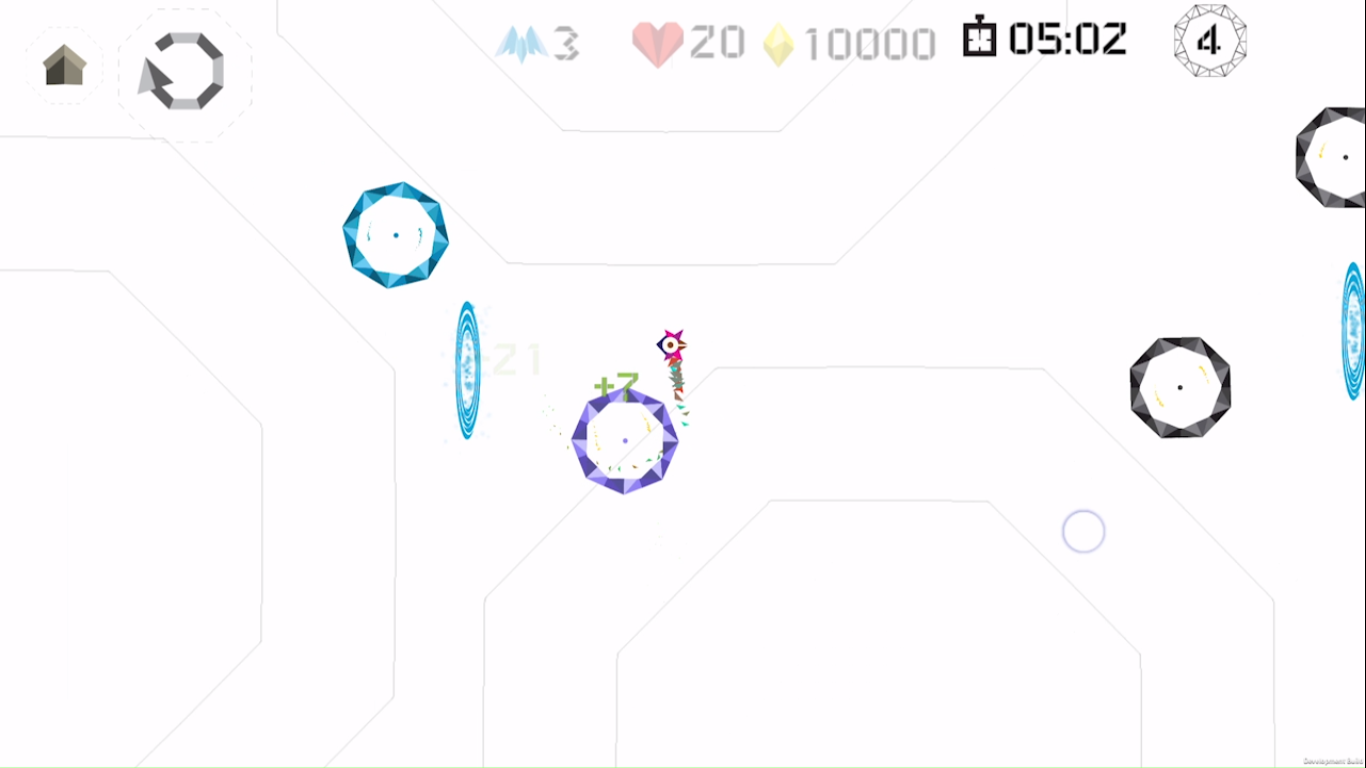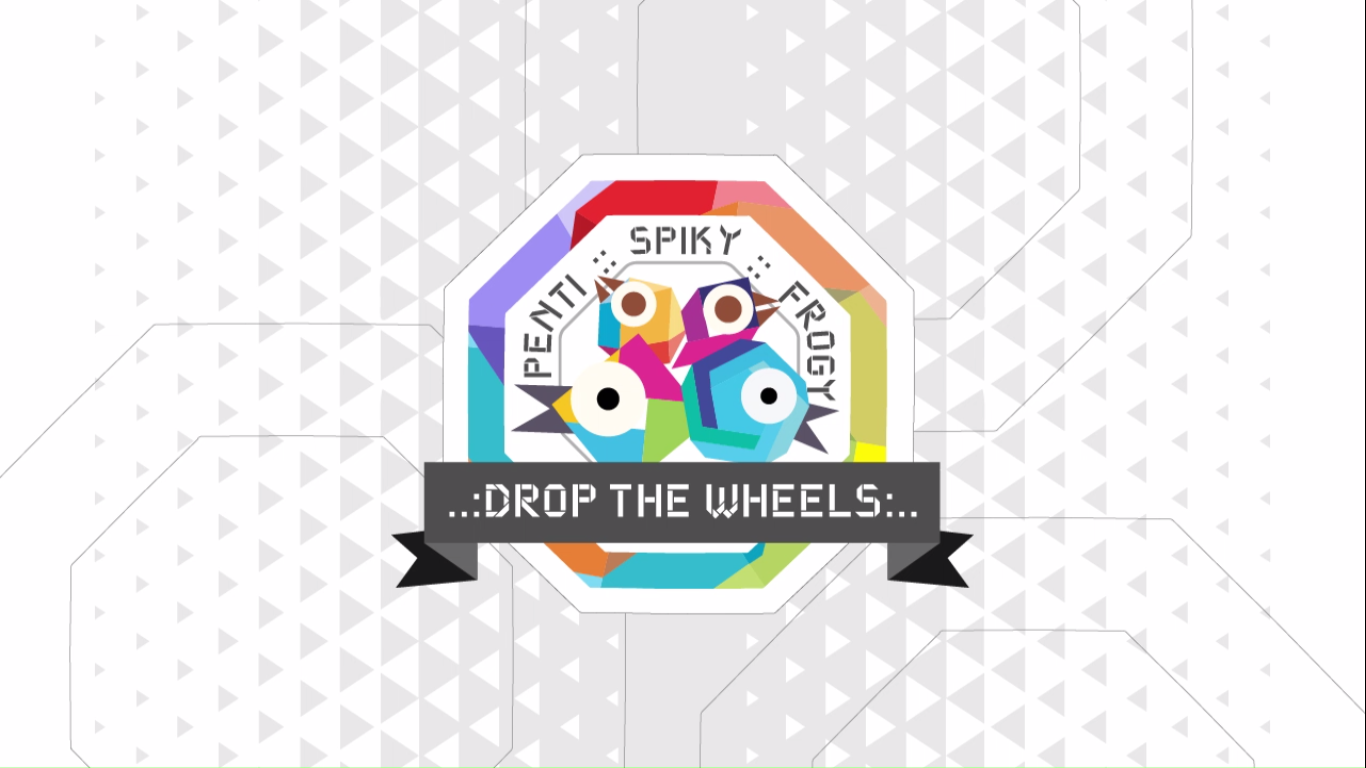While the Middle East is developing to catch up with the West and Europe, the people living there have to grow faster. It is in this process of self growth that you get people in the gaming field studying outside of their home region and coming back. Or you have people, the ones who make a career change or don’t leave at all, needing to build the skills to compete in the game field.
As part of the former but more of the latter, Wajdi Azar from 3 Dots Games stepped into the indie game dev scene around 9 years ago. Studying Computer Engineering at Dnepropetrovsk University in Ukraine, he currently lives and works in Amman, Jordan.
I first met Wajdi when he was working in his previous project, Chicken Foot, on the game called Four Shamans. But like a lot of people, it is the small failures that lead to the bigger things. Teaming up with a talented designer, the team is working on a game called Drop the Wheels, which is to be released later this week.

It isn’t a career without risk though, especially in a region that is realizing that they have something big at hand. With the government showing interest in game companies, as well as companies like Oasis500, Jordan’s Gaming Lab, and Zinc either providing programs and/or seed money – it is rare that you get people who stick to self funded indie development.
“High competition, and locals are taken better than outsourced help. But as time went on, simple development kills the creativity needed, and I preferred to go into indie development instead.”
As to why he ended up staying here though, it ended up becoming a common story. High competition, locals versus outsourcing, and so on. At a certain point, it became better to stay local and work local.
But as Wajdi put it:
[Jordan] just realized that games make big money. 5 years ago, nobody had the awareness of games. They turned to apps and web development as the sure fire way to make money.
And to a certain extent, he is right. While Jordan is trying to push itself ahead of the race, things need to be adopted first from a business standpoint in the States, then to Europe, before they are brought to the region. With a weird punishment game set on the forerunners, talent either leaves the region or ends up dying out here.
But as I mentioned earlier, services from companies like Zinc assist entrepreneurship and startups. With providing services like internet and desks – these services are things that fledgling startups take advantage of to build their products.
As the viewer looking into to micro-system placed here, small teams struggle to push out their games. In that sense they become like magicians changing their stage name after each failure. There is an issue of risk though given the weak copyright laws in the country. With a majority of players learning through imitation, copycat and knock-off games happen a lot. Personally I ran into this issue, when I was working at one of these entrepreneurship labs. One of the games I was working on at the time had its name changed, and the “Designed by” part altered.
So when asked Wajdi about the culture…
“I hate it, because it’s annoying for game developers and companies. Just steal your idea, change the name and release the game. Like tower switch. There’s 10 games, switch tower, color switch 2, it is pretty much bullshit and stealing.”
When it comes to his own games though, there is a stress on producing something original. That enforces a stronger growth as a developer and forces you to learn skills outside of your bubble zone. Being a jack-of-all-trades, and a master of a few, isn’t a bad thing though. It is the cost effective option, until you can find the right replacement part to the team.
For instance his partner, who has chosen to not be named, handles the design aspects for the game. This ranges from advertisement media, to music, to UI design. Wajdi handles the coding and level design, as well as the debugging. With relying on the community for testing, they tap into a system that has been sustaining itself with communal support.
Another key thing that came up in my discussion with Wajdi over Drop The Wheels, is the idea of focus. One of the pitfalls of creating games is that fledgling game designers try to cram so much into their game that it implodes. It was a problem he ran into when coming up with the game, which ran into time and money constraints.
[Wajdi] I was working on a physics based game, and then I realized it’ll take too long to finish it, so I took one part of the game, the rotating wheels, and focused on it. In the prototype, you had a character who moved right to left, and is attached to rotating wheels. The main objective was to collect stars and avoid obstacles. Then I took just the wheels from the prototype and created the game Drop the Wheels.
With Drop the Wheels, it focuses on the simple physics and mechanics of jumping from wheel to wheel. Playing through it, some parts reminded me of the game Badlands, but with a much more Portal slash origami minimal art style.

“The design went with the Japanese style, but not sci-fi. So like origami, with the shapes from triangles? That kind of style.”
Coming along from the prototype, the game became simpler and simpler until it reached the core mechanic of what they want to do. With a purely digital direction, they have been working on the project for around four months now.
Finishing up the coffee, I asked a final question regarding the gaming stratosphere in the middle east. As it isn’t something that is widely encouraged, with people preferring their children to be doctors or engineers, I asked about his number one tip for people in the region.
“Start with small ideas, until you hit, then you can do anything you want. Save your khalina ehki [let’s say]… your huge ideas, eish el kilma sah [what’s the right word], save your large scale ideas, and work on the small ones till you build your success. So then you can invest in bigger ideas.”







Published: Apr 24, 2016 03:51 pm